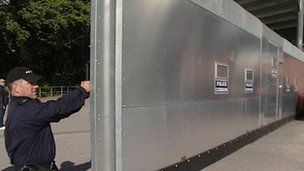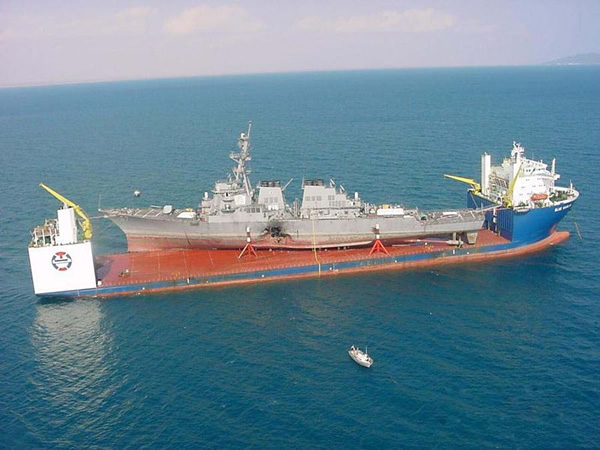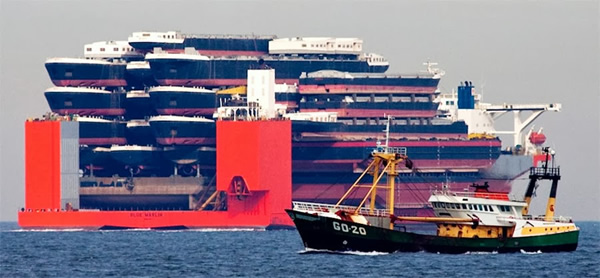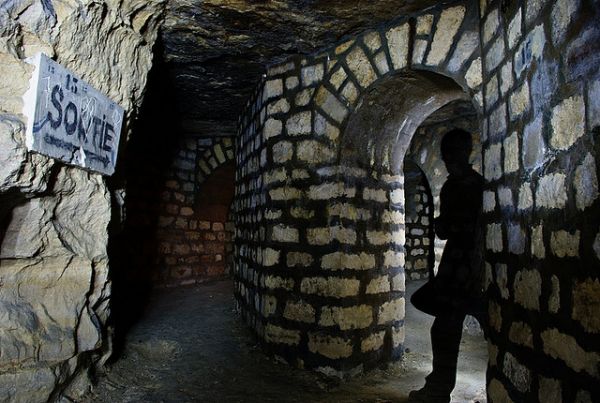by Khaled Yacoub Oweis and Roberta Rampton
Syria accepted a Russian proposal on Tuesday to give up chemical weapons
and win a reprieve from U.S. military strikes, while its jets returned
to the sky to bomb rebel positions in Damascus for the first time since
the West threatened force.
Syrian Prime Minister Wael al-Halki accepted the Russian proposal "to spare Syrian blood," state television reported.
The United States and France had been poised to launch missile strikes to punish President Bashar al-Assad's forces, which they blame for chemical weapons attacks that killed hundreds of civilians on August 21.
The White House said President Barack Obama, who called the Russian proposal a potential breakthrough, would still proceed with a vote in Congress to authorize force.
But the vote now appears more about providing a hypothetical threat
to back up diplomacy, rather than to unleash immediate missile strikes
to punish Damascus for gassing its civilians.
The Russian diplomatic initiative, which emerged after off-the-cuff remarks by U.S. Secretary of State John Kerry
alluding to such a deal, marks a sudden reversal following weeks in
which the West appeared finally headed towards intervention, having
stayed on the sidelines while war escalated for years.
But whether inspectors can neutralize chemical weapons dumps while war rages in Syria remains open to question.
Syria's rebels reacted with deep dismay, saying the proposal had
already emboldened Assad to launch a deadly new offensive and meant that
last month's gas attacks would now go unpunished.
France said it would put forward a U.N. Security Council draft
resolution on the basis of Moscow's proposal. Syria would have to put
its stockpiles of chemical arms under international control and face
"extremely serious" consequences if it violated the conditions, Paris
said.
The proposal provides a way out for Obama, to avoid ordering
unpopular action. It may make it easier for him to win backing from a
skeptical Congress, which could have severely damaged his authority if
it withheld support for strikes.
Russia's Interfax news agency quoted Syrian Foreign Minister Walid
al-Moualem, visiting Moscow, as saying Damascus had agreed to the
Russian initiative because it would "remove the grounds for American
aggression".
While the diplomatic wrangling was under way in far-flung capitals,
Assad's warplanes bombed rebellious districts inside the Damascus city
limits on Tuesday for the first time since the August 21 poison gas
attacks. Rebels said the strikes demonstrated that the government had
concluded the West had lost its nerve.
"By sending the planes back, the regime is sending the message that
it no longer feels international pressure," activist Wasim al-Ahmad said
from Mouadamiya, one of the districts of the capital hit by the
chemical attack.
The war has already killed more than 100,000 people and driven
millions from their homes. It threatens to spread violence across the
Middle East, with countries endorsing the sectarian divisions that
brought civil war to Lebanon and Iraq.
The Russian proposal "is a cheap trick to buy time for the regime to
kill more and more people," said Sami, a member of the local opposition
coordinating committee in the Damascus suburb of Erbin, also hit by
last month's chemical attack.
But Damascenes in pro-Assad areas were grateful for a reprieve from
Western strikes: "Russia is the voice of reason. They know that if a
strike went ahead against Syria, then World War Three - even Armageddon -
would befall Europe and America," said Salwa, a Shi'ite Muslim in the
affluent Malki district.
"I'm so happy. I'm so grateful. Our country will be alright," she said.
"WELL PLAYED"
French officials said their draft resolution was designed to make
sure the Russian proposal would have teeth, by allowing military action
if Assad is uncooperative.
"It was extremely well played by the Russians, but we didn't want
someone else to go to the U.N. with a resolution that was weak. This is
on our terms and the principles are established. It puts Russia in a
situation where they can't take a step back after putting a step
forward," said a French diplomatic source.
The White House portrayed the deal as a success that vindicated Obama's firm stance.
"We see this as potentially a positive development and we see this
as a clear result of the pressure that has been put on Syria," White
House spokesman Jay Carney said on Tuesday.
The Russian proposal could make it easier for members of the U.S.
Congress to vote to authorize action as part of a diplomatic initiative,
knowing that it will not lead directly to missile strikes which are
opposed by most Americans.
Republican Senator John McCain, a leading hawk, said lawmakers were
working on new wording of a Congressional resolution to ensure "strict
timelines and guidelines that would have to be met" for Assad to give up
chemical arms.
OBAMA CAUTIOUS
The White House and the Kremlin both said the Russian proposal was not entirely new and that Obama and President Vladimir Putin had discussed the principles behind it in the past. Putin's spokesman said it came up at a summit last week.
Nevertheless, it appeared to emerge out of the blue after unscripted
remarks by Kerry, who responded to a question in London on Monday by
saying the only way for Assad to avoid U.S. strikes would be to
relinquish his chemical weapons.
In his initial remarks Kerry said such an event was unlikely, and
the State Department said he was only making a rhetorical point. But
within hours, Russia's Foreign Minister Sergei Lavrov was proposing
exactly that, and Obama was cautiously hailing a potential breakthrough.
With veto-wielding China also backing it, it would be the rare Syria
initiative to unite global powers whose divisions have so far blocked
Security Council action. Assad's main regional backer Iran has also
signaled support, as has U.N. Secretary-General Ban Ki-moon.
Gulf Arab states which support the rebels were skeptical, however: "It's all about chemical weapons
but doesn't stop the spilling of the blood of the Syrian people," said
Bahrain's Foreign Minister Shekih Khaled bin Ahmed al-Khalifa.
After 12 years of wars in Iraq and Afghanistan, Obama has had a hard
time winning support for strikes from the public or Congress. Britain
quit the coalition threatening force after Prime Minister David Cameron
lost a vote in parliament.
Obama was still cautious: "It's possible that we can get a
breakthrough," he told CNN, although he said there was a risk that it
was a further stalling tactic by Assad.
"We're going to run this to ground," he said. "John Kerry and the
rest of my national security team will engage with the Russians and the
international community to see, can we arrive at something that is
enforceable and serious."
ASSAD OFFENSIVE
The wavering from the West dealt an unquestionable blow to the
Syrian opposition, which had thought it had finally secured military
intervention after pleading for two and a half years for help from
Western leaders that vocally opposed Assad.
The rebel Syrian National Coalition decried a "political maneuver
which will lead to pointless procrastination and will cause more death
and destruction to the people of Syria."
Assad's forces - which had been withdrawing from fixed positions and
bracing for expected Western strikes - appear to have responded to the
hesitation by redoubling an offensive to clear fighters from Damascus
suburbs.
Troops and pro-Assad militiamen tried to seize the northern district
of Barzeh and the eastern suburb of Deir Salman near Damascus airport,
working-class Sunni Muslim areas where opposition activists and
residents reported street fighting.
Fighter jets bombed Barzeh three times and pro-Assad militia backed
by army tank fire made a push into the area. Air raids were also
reported on the Western outskirts near Mouadamiya.
Syria is not a party to international treaties which ban the
stockpiling of chemical weapons but is bound by the Geneva conventions
that forbid using them in war. Syria has not said whether it possesses
poison gas, while denying it has used it.
Western states believe Syria has a vast undeclared chemical arsenal.
Sending inspectors to destroy it would be hard even in peace and
extraordinarily complicated in the midst of a war.
The two main precedents are ominous: U.N. inspectors dismantled the
chemical arsenal of Iraqi leader Saddam Hussein in the 1990s but left
enough doubt to provide the basis for a U.S.-led invasion in 2003.
Libyan leader Muammar Gaddafi was rehabilitated by the West after
agreeing to give up his banned weapons, only to be overthrown with NATO
help in 2011.
Assad's government says last month's chemical attack was the work of
rebels trying to win Western military support, a scenario Washington
and its allies say is not credible.
Human Rights Watch, the New York-based watchdog, said evidence
strongly suggested Syrian government forces were to blame because the
attack used rockets and launchers in the possession only of government
forces.













 Portable
barriers designed to be used during nuclear or biological incidents
were deployed to separate exiting football fans in Devon, UK, after a
match between Plymouth Argyle and Bristol Rovers.
Portable
barriers designed to be used during nuclear or biological incidents
were deployed to separate exiting football fans in Devon, UK, after a
match between Plymouth Argyle and Bristol Rovers. 










 In
1829, the government established a colony on 300 acres of woodland on
Staten Island in New York. The poor, the disabled, and the mentally ill
were taken there to raise crops and earn their keep -which they did,
until the population aged and it became an old folks home. It was only
closed in 1975. That's where the history of the site takes a more
sinister turn.
In
1829, the government established a colony on 300 acres of woodland on
Staten Island in New York. The poor, the disabled, and the mentally ill
were taken there to raise crops and earn their keep -which they did,
until the population aged and it became an old folks home. It was only
closed in 1975. That's where the history of the site takes a more
sinister turn.
 Daniel Loxton is a writer at Skeptic magazine. Donald R. Prothero is a paleontologist. They got together and wrote the new book Abominable Science! Origins of the Yeti, Nessie, and Other Famous Cryptids,
which may be a disappointment for people who buy it for the title
alone. National Geographic News has an interview with both authors. A
sample:
Daniel Loxton is a writer at Skeptic magazine. Donald R. Prothero is a paleontologist. They got together and wrote the new book Abominable Science! Origins of the Yeti, Nessie, and Other Famous Cryptids,
which may be a disappointment for people who buy it for the title
alone. National Geographic News has an interview with both authors. A
sample:






